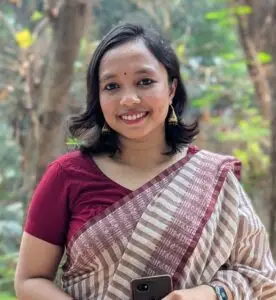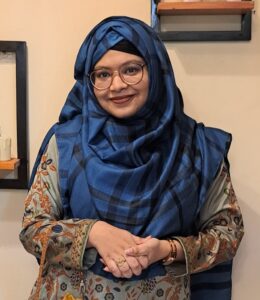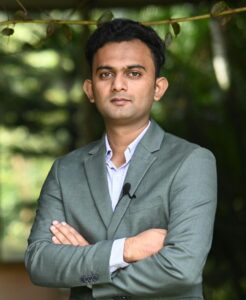Misinformation and disinformation should never go unchecked. At Dismislab, we dig into online harm with evidence-based research, uncovering patterns, informing actionable responses, and pushing for systemic change in information governance.
With this mission at our core, we are proud to announce the 2025 cohort of our Digital Verification Fellowship. This year, we welcome three exceptional young fellows with diverse academic backgrounds spanning Media Studies and Journalism, Criminology, and Women and Gender Studies.
Each fellow brings a distinct professional perspective to the team. Together, they will contribute to our evidence-based research on online harm and amplify combat online misinformation and disinformation.
This program is about more than just software and verification tools. It’s about understanding the ‘how’: How information is now weaponized to shape public perception, how narratives are built and dismantled, and ultimately, how we must fight for information integrity in Bangladesh and beyond.
Meet the Fellows
Tonima Aktar Jim
 Tonima Aktar Jim is an emerging researcher passionate about issues of justice, migration, social inclusion, and cybercrime. Holding both Bachelor’s and Master’s degrees in Criminology from the University of Dhaka, her academic journey has focused on questions of inequality, rights, and governance. She has collaborated with several institutions on research and community-focused projects addressing refugee migration, urban youth dynamics, and women’s empowerment. These experiences have strengthened her commitment to producing knowledge that highlights marginalized voices and informs meaningful social change.
Tonima Aktar Jim is an emerging researcher passionate about issues of justice, migration, social inclusion, and cybercrime. Holding both Bachelor’s and Master’s degrees in Criminology from the University of Dhaka, her academic journey has focused on questions of inequality, rights, and governance. She has collaborated with several institutions on research and community-focused projects addressing refugee migration, urban youth dynamics, and women’s empowerment. These experiences have strengthened her commitment to producing knowledge that highlights marginalized voices and informs meaningful social change.
Her research interests lie at the intersection of narrative manipulation, migration and displacement, digital rights, and community empowerment. She firmly believes that Dismislab’s focus on misinformation, narratives, and governance provides a dynamic environment where she can both contribute to and learn from critical, locally grounded yet globally relevant conversations.
Noshin Tabassum
 Noshin Tabassum is an avid researcher with a focus on human rights, gender justice, and social inclusion. She majored in Women and Gender Studies at the University of Dhaka. During her work at BLAST, she participated in the Equity Fellowship, conducting in-depth research on technology-facilitated gender-based violence. She has also worked on disability rights, supported marginalized communities, and studied the employment rights of indigenous women.
Noshin Tabassum is an avid researcher with a focus on human rights, gender justice, and social inclusion. She majored in Women and Gender Studies at the University of Dhaka. During her work at BLAST, she participated in the Equity Fellowship, conducting in-depth research on technology-facilitated gender-based violence. She has also worked on disability rights, supported marginalized communities, and studied the employment rights of indigenous women.
Her research interests include information disorder and verification, digital rights, and governance and policies.
Her work on technology-facilitated gender-based violence has highlighted how misinformation, online harassment, and privacy breaches disproportionately affect women and gender-diverse communities. This experience led her to apply for the fellowship. With a strong interest in information disorder and verification, digital rights, and governance and policies, she aims to develop the expertise to verify, counter, and prevent such harms, as well as advocate for inclusive technology policies.
Md. Touhidul Islam
 Md. Touhidul Islam, with experience in fact-checking and reporting, holds a Bachelor’s degree in Media Studies and Journalism from the University of Liberal Arts Bangladesh. His academic interests lie in fact-checking methodologies, open-source and forensic investigation, and research that advances critical thinking, media literacy, and information integrity in support of digital rights.
Md. Touhidul Islam, with experience in fact-checking and reporting, holds a Bachelor’s degree in Media Studies and Journalism from the University of Liberal Arts Bangladesh. His academic interests lie in fact-checking methodologies, open-source and forensic investigation, and research that advances critical thinking, media literacy, and information integrity in support of digital rights.
He is passionate about building professional and profound understanding of misinformation, disinformation, and digital crimes – analyzing how false narratives emerge, adapt, and spread across digital spaces.
Determined to generate knowledge and strategies that counter information disorders and help create more resilient digital environments, through this program, he aims to improve his skills in digital investigation, learn advanced approaches to research design, practice data collection and analysis.

